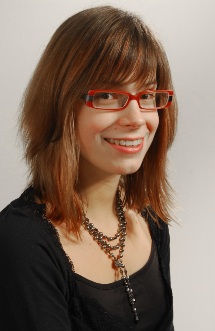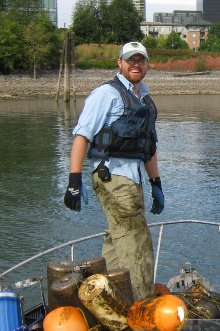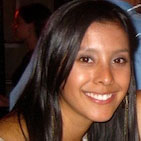Superfund Research Program
Congratulations to the 2012 winners of the K.C. Donnelly Externship Award!

Sabine Vorrink: The Role of Hypoxia in PCB-Induced Aryl Hydrocarbon Receptor Signaling
Sabine Vorrink is a graduate student at the University of Iowa Superfund Research Program Center under the guidance of Frederick Domann, Ph.D. She will be conducting a 3-month externship at the University of Arizona. While there, Vorrink will conduct mechanistic studies of the effects of polychlorinated bi-phenyls (PCBs) on the aryl hydrocarbon receptor (AhR) and hypoxia inducible factor (HIF1α) and with their aryl hydrocarbon receptor nuclear translocator (ARNT) complexes. Vorrink is determining the effects of hypoxia on these receptor complex responses to PCBs and their ability to affect genes of metabolism in liver and skin cells. She will be utilizing molecular techniques such as western blotting and ChIP-sequencing to conduct these studies. Bernard Futscher, Ph.D., will provide mentorship while she is there.
"During my Externship I will learn new techniques that will help me to gain valuable information about the role of hypoxia on biological responses mediated by the AhR and will provide unique scientific insights into PCB toxicity. Furthermore, I hope to establish collaborations and interactions with other departments and institutions between independent SRP Centers in different regions of the country. This will extend my experience and scientific knowledge into related toxicology fields and will significantly expand my training horizons."

Steven O’Connell: PAHs: New Technologies and Emerging Human Health Risks
Steven O’Connell is a graduate student in the lab of Kim Anderson, Ph.D., at the Oregon State University Superfund Research Program Center. He is undertaking an externship at the Lower Duwamish Waterway (LDW) Superfund Site. He is conducting studies using passive sampling devices (PSDs) to measure bioavailable contaminants in water and sediment at the site. His goals during this externship are to further develop and demonstrate PSD technologies; conduct analytical methods to quantify the many types of contaminants found at this site; and provide preliminary data to prior to remediation of the LDW. The data collected from this project will be used in O’Connell’s current research graduate project and by EPA Region 10. Kira Lynch, Superfund Technology Liaison in EPA Region 10, will be providing mentorship and guidance at the Lower Duwamish Waterway Superfund Site.
"The externship will allow me to expand my knowledge base with professionals at the Lower Duwamish Waterway Superfund site, including scientists at EPA's Region 10. Specifically, this opportunity will allow me to see how State, Federal, and local parties collaborate with an ongoing Superfund remediation strategy, and how the bioavailable data I will provide might contribute. In addition to working with interested parties outside Oregon State University, this body of research will be used in conjunction with other passive sampling projects to examine if these tools may or may not be useful for environmental fate and transport modeling. Predictive relationships between sediment, water and air of bioavailable target compounds would be a useful tool made possible through the K.C. Donnelly Externship and would certainly add to my ongoing research of complex environmental mixtures. I'm really excited to get started!"

Vanessa De La Rosa: Toxic Substances in the Environment
Vanessa De La Rosa is a graduate student at the University of California-Berkeley Superfund Research Program Center. She will be traveling to the University of North Carolina-Chapel Hill to undertake her externship under the guidance of James Swenberg, D.V.M., and Jun Nakamura, Ph.D., D.V.M. While there, De La Rosa will study trichlorethylene (TCE)’s metabolite DCVC and its mechanisms mediating TCE-induced renal cancer. She conducts studies with yeast at UC-Berkeley, and while at UNC-Chapel Hill, she will utilize a mutant and non-mutant avian B-cell system to study TCE’s effects on translesion synthesis and DNA damage. The data collected during the externship will be used in De La Rosa’s current research graduate project. Her results will be presented at meetings as well as in publications.
"This externship will give me the opportunity to utilize the avian DT40 cell line to gain insight on how DNA damage and repair mediates toxicity and cancer of the superfund contaminant trichloroethylene. This work will supplement previous studies conducted in other organisms to identify conserved mechanisms of trichloroethylene toxicity."


